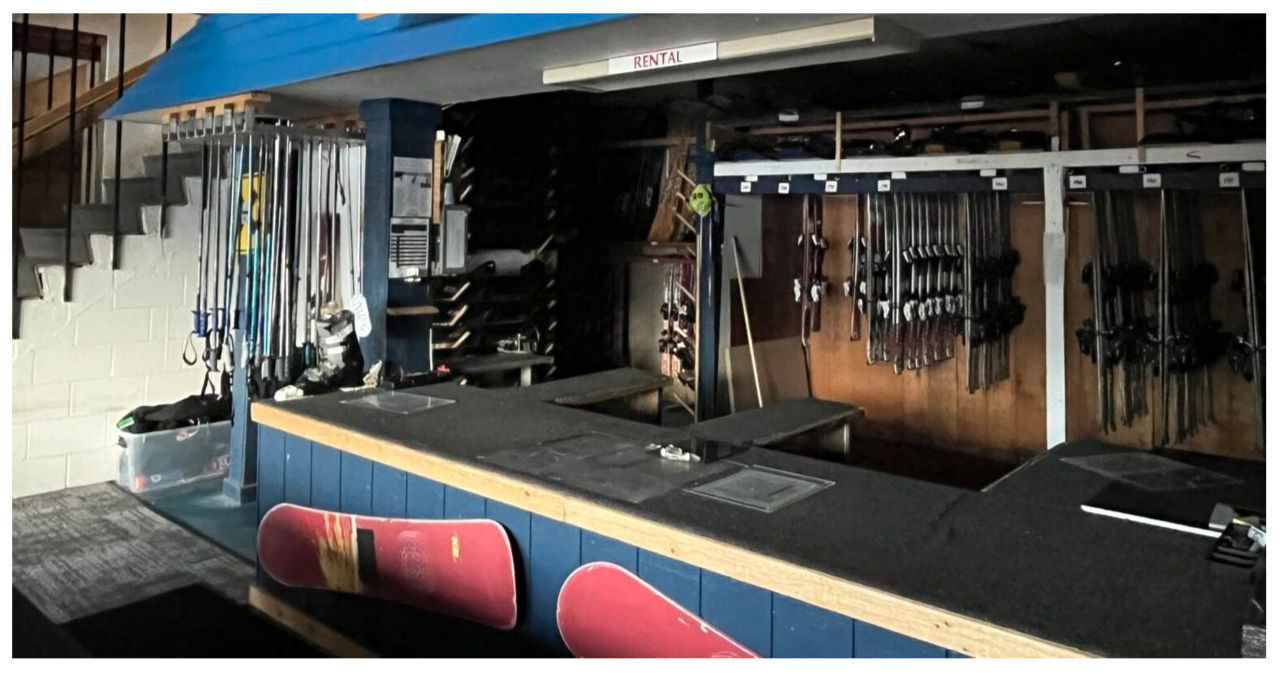The ski rental desk at Mt. Holiday in Traverse City was deserted on February 8, 2024. On that particular day, the National Weather Service documented a high temperature of 61 degrees.
This partnership between IPR and Grist, a nonprofit environmental media organization, enables us to provide this coverage.
The ski hill was covered in grass and streaked with mud. Even the snowmobile trails showed signs of dirt and fall leaves that hadn’t been fully cleared. It was unusual for Traverse City to experience such warm weather, with temperatures reaching a record high of 73 degrees in late February.
The snow-based businesses in northern Michigan and the Midwest faced a challenging winter season.
In a letter addressed to heads of Congress, the Small Business Administration, and the Federal Emergency Management Agency, Governor Gretchen Whitmer expressed the challenges faced by businesses due to the extreme heat and lack of snow. She urged for additional funding options to support these struggling businesses.
Governor Gretchen Whitmer delivered her State of the State address to members of the Michigan Legislature in Lansing on January 24, 2024. (Photo by Andrew Roth)
In an effort to provide economic relief to businesses in Michigan counties that have been declared under federal drought conditions, Whitmer and other state lawmakers last month urged them to apply for assistance through the Small Business Administration.
Businesses in 43 counties are now eligible to apply for Economic Injury Disaster Loans through the Small Business Administration (SBA). This opportunity extends to various businesses in northern Michigan and the Upper Peninsula.
However, certain areas of the state are unable to benefit from this assistance. Given the projection of continued warm winters, Whitmer believes that businesses in these regions require improved access to federal aid.
According to the speaker, there is currently no reliable or customized tool available for providing federal relief to businesses that have been severely impacted by unusually warm winters.
Whitmer highlighted the significant impact on Mount Bohemia Ski Resort in Keweenaw County, which experienced a staggering 60% decline in revenue. However, despite the financial struggles, the resort is unable to access federal loans. This stands in contrast to the situation faced by businesses in most other counties in the Upper Peninsula (U.P.), who have been able to secure such support.
A warm winter
The state’s tourism-dependent businesses have faced significant challenges this season due to the combination of high temperatures and low snowfall. This has had a profound impact on local communities, with the effects being felt far and wide.
According to Nick Nerbonne, the director of industry relations for Travel Michigan, the winter tourism sector in Michigan was greatly affected this year. Winter resorts, ski areas, hotels, lodging properties, restaurants, and grocery stores, all of which are essential for travelers visiting the state during this season, experienced significant impacts.
According to the most recent report on tourism by the corporation, visitors contributed a staggering $27.3 billion to the state’s economy in 2022.
Nerbonne emphasized the snow-making capabilities of certain ski resorts in Michigan this year to reassure visitors that the state still offers opportunities for snow-related activities.
On the other hand, he mentioned that areas that depend on natural snowfall could have been particularly affected.
According to the spokesperson, the region of northern Michigan and the Upper Peninsula is known for its well-maintained snowmobile trails and popular activities such as cross-country skiing. These attractions heavily rely on natural snowfall and tend to attract a significant number of visitors.
Travel Michigan is changing its winter tourism messaging to incorporate activities such as fat-tire biking and trail hiking, rather than focusing solely on snowshoeing. According to Nerbonne, businesses have been open to adapting their strategies accordingly.
According to the expert, it is advisable for businesses to consider alternative options that are not reliant on weather conditions in order to enhance their resilience.
Whitmer’s letter emphasized the need for “regulatory or legislative solutions” to facilitate greater access to federal aid for governments. She also expressed her willingness to facilitate connections between lawmakers, administrators, businesses, and governments.
In her message, she emphasizes that the drought declaration path is an unreliable and inaccurate measure for addressing the challenges faced by these communities. Moreover, considering the potential aggravation of this problem due to the impacts of climate change, she urges for immediate assistance in developing sustainable solutions for the long term.



